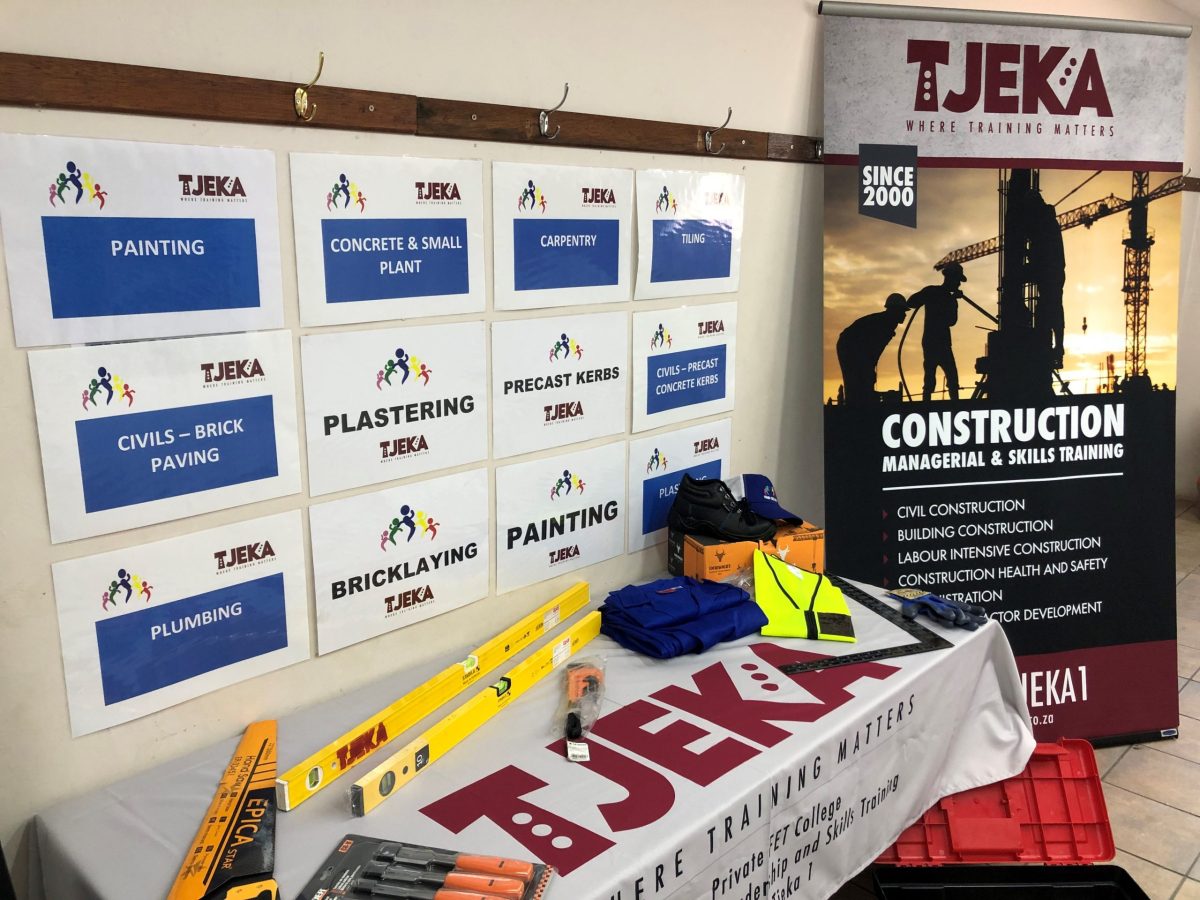
A specialist in construction training, Tjeka Training Matters’ portable training solutions encompass critical trades in the building industry, including bricklaying, plastering, painting and plumbing.
Leading mines continue to use Tjeka Training Matters’ innovative portable skills training solutions to quickly and efficiently equip communities located within their operational footprints with the basic skills that they need to secure employment or start their own businesses. They are also a very effective means of reskilling employees to minimise the impact of downscaling or closure of operations. Construction trades are also skills that mines can use in and around their operations by either redeploying trained staff or sourcing these proficiencies from surrounding communities and, thereby, creating further employment opportunities.
This is in addition to skills that are required on general civil-engineering construction projects, such as brick paving and precast-concrete kerbs.
Learners receive instruction from skilled professionals who have a wealth of experience working as trades people in the building and civil-engineering construction industries that they are able to impart in these training programmes. To enhance the learning experience, Tjeka Training Matters has also partnered with leading manufacturers and suppliers of tools and materials. A case in point is Tjeka Training Matters’ long-standing working relationship with Upat SA, which supplies well-known STABILA spirit levels, Milwaukee power tools and fischer fixings. These products are incorporated in Tjeka Training Matters’ various portable skills training programmes.
“As a 100% South African owned business Upat SA acts as the local agents for various international mining and construction-orientated brands. As a team we are dedicated to introducing the next generation of trades people to the latest in tool technology and practices, with the objective to increase their productivity levels. As we celebrate our 40th anniversary supplying high quality products and knowledge to the industry, we are excited to work closely with Tjeka Training Matters towards upskilling trades people throughout the country,” Jaycee Venables, Marketing Manager of Upat SA, says
“We have always taken pride in providing relevant training that has been designed to have a maximum impact on mining communities and employees. Part of this approach entails exposing learners to tools and equipment, as well as materials that they are very likely to encounter on a real worksite because they facilitate accuracy, efficiency and productivity. Moreover, learners are taught right from the outset how to use the correct tools for the job.
This, combined with the right skills and experience that is accumulated over time, ensures quality workmanship, which is exactly what we stand for as a company and reflected in the construction training that we provide,” Frans Toua, Chief Executive Officer of Tjeka Training Matters, says.
By focusing on reskilling employees and training community members to become trades people in the construction sector, mines are taking a long-term view that transcends the life-of-mine. The impact of a closure or downscaling of an operation can have a devastating impact on communities and employees that have grown extremely reliant on mining over the years. Skills such as plumbing are highly sought-after and many individuals who have completed Tjeka Training Matters’ short courses in the field have secured employment and then studied further with the company to qualify as professional artisans. More enterprising individuals have since started their own thriving businesses that service their communities. Some of these entrepreneurs have even scaled and branched out. “These are success stories that show that mines are not merely training for just the sake of it or to meet the commitments that they have made in their social-labour plans to receive mining rights. They are committed to investing in the future and ensuring the long-term sustainability of the communities that have contributed to their success over the years,” Toua concludes

